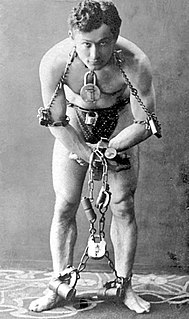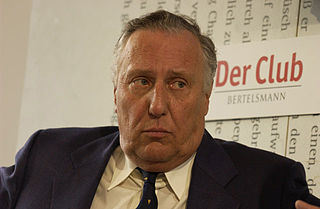A Quote by Charles Duhigg
For years, many public health campaigns that aimed at changing habits have been failures.
Related Quotes
In 1980, a woman promised her dying sister to change how Americans thought about breast cancer. Thirty years later, the result - the Susan G. Komen for the Cure Foundation - is one of the nation's largest non-profits, and one of the most successful triumphs in public health marketing and changing health habits.
Most of my work for the past 25 years has been devoted to organizing demonstrations, benefits and campaigns, many of which have had the effect of bringing a policy debate to public focus or moving a political agenda forward. It's become a cliché to say 'think globally and act locally,' but it works.
For many years, we have had these campaign finance reforms, and they have been failures. Money is more coursing through our system than ever before. Incumbents have used the laws to advantage themselves. And one of the reasons I think they have been failures is we have tried to crush down the money in places like the political parties, and it has squished out into opaque super PACs and sort of hidden channels.
In natural pregnancy, more than half of fertilized eggs fail to implant or are otherwise lost. Should we regard that as an instance of infant mortality? And if so, why are we not mounting ambitious public health campaigns to try to save and rescue all of the fertilized eggs that are lost in natural pregnancy? We would need a public health campaign of massive proportions if there really were over a fifty percent rate of infant mortality.
The best way to alleviate the obesity "public health" crisis is to remove obesity from the realm of public health. It doesn't belong there. It's difficult to think of anything more private and of less public concern than what we choose to put into our bodies. It only becomes a public matter when we force the public to pay for the consequences of those choices.
There are many people who enjoy animal based foods and who have no interest in changing the way they eat. And as you correctly pointed out, animal products are an integral part of some ethnic groups and societies and it would be nearly impossible for them to change thousands of years of traditional eating habits.
To get that word, male, out of the Constitution, cost the women of this country fifty-two years of pauseless campaign; 56 state referendum campaigns; 480 legislative campaigns to get state suffrage amendments submitted; 47 state constitutional convention campaigns; 277 state party convention campaigns; 30 national party convention campaigns to get suffrage planks in the party platforms; 19 campaigns with 19 successive Congresses to get the federal amendment submitted, and the final ratification campaign.































